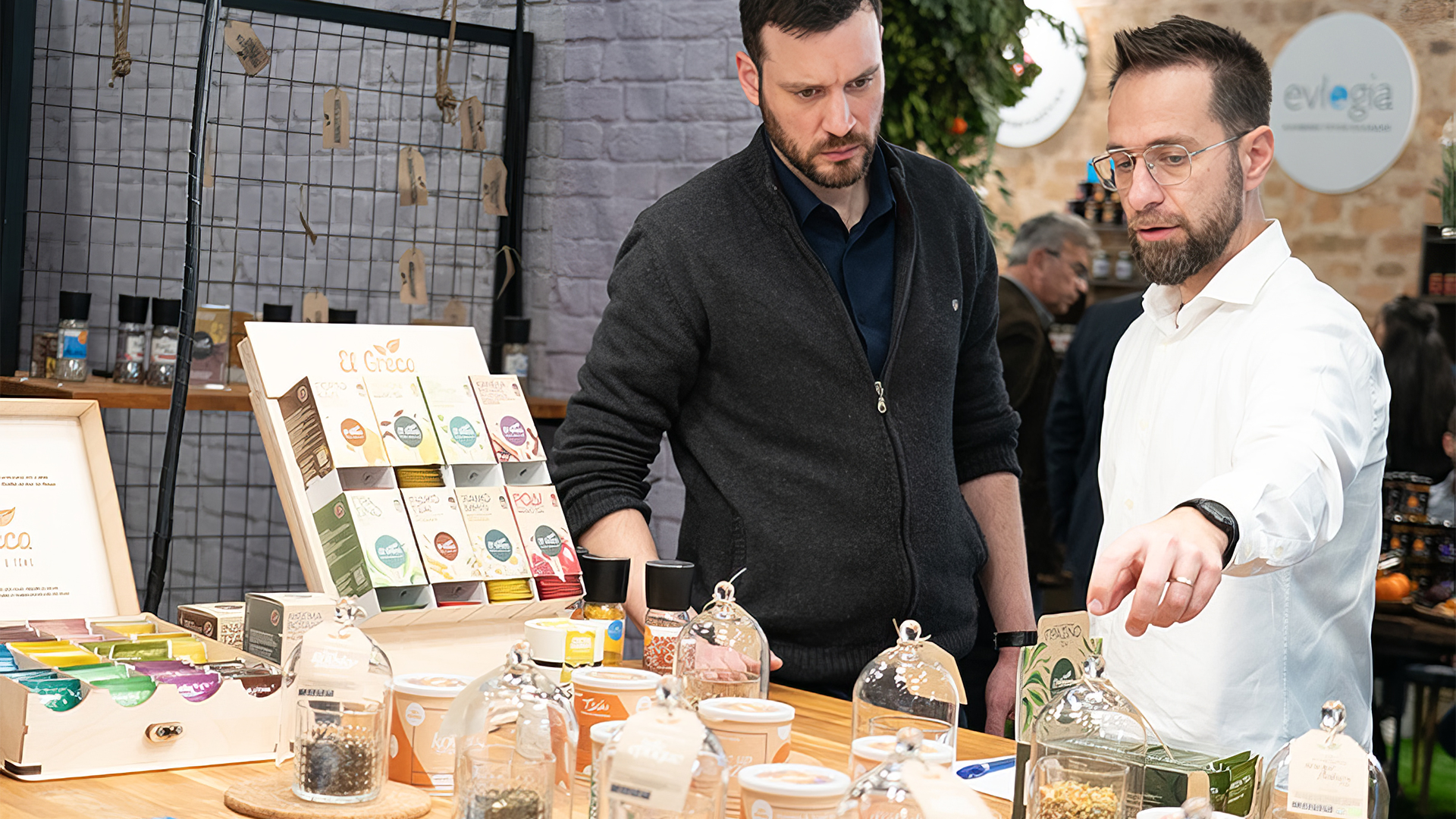In the realm of gastronomy, innovation is the key ingredient that keeps the culinary world evolving. From the bustling streets of Paris to the vibrant markets of Bangkok, food innovators worldwide are continuously pushing the boundaries of taste, sustainability, and technology. And at the 2024 Greece Food Expo in Athens, we witnessed firsthand the realm of European and worldwide food innovation, exploring how chefs, entrepreneurs, and food scientists are reshaping the way we think about food. The Greece Food Expo is the largest food and beverage expo in Southeast Europe, and we attended to offer services to clients exploring or expanding into the U.S. market through our Soft Landings and Global Market Entry Program.
European Culinary Renaissance
Europe and its rich culinary heritage has always been at the forefront of food innovation. There has been a renaissance in European gastronomy in recent years, however, characterized by a resurgence of traditional techniques fused with modern creativity.
One notable trend is the rise of “farm-to-table” dining experiences, where restaurants source ingredients directly from local farmers and producers. In Greece, there was an incredible number of olive, honey, and relevant variations of these small producers, mostly from farms of less than 10 acres. Every restaurant featured the locally grown specialties, each with its own flair or recipe, from oils that glistened like liquid gold to dark moody greens that tasted like a fresh olive reminiscent of a ripe piece of fruit plucked from a tree. Roadside farmstands dotted the countryside with oranges, lemons, honey, and fresh local wines flowing from casks where patrons provided their own bottles in which to tap. (This pour-your-own technique not only ensures freshness but also promotes sustainability and supports local economies.) In cities like Copenhagen and Barcelona, Michelin-starred restaurants like Noma and Tickets have embraced this ethos, crafting exquisite dishes that celebrate the seasonality of ingredients.
Europe is also witnessing a surge in plant-based cuisine driven by growing concerns about health and the environment. Chefs are experimenting with innovative plant-based ingredients and techniques to create dishes that are not only delicious but also eco-friendly.
In Athens, there was no shortage of plant-based alternatives with a noticeably different emphasis on flavor. American-style plant-based burgers tasted like real beef burgers – nothing new by Impossible Foods standards, but a distinct shift toward more high-brow culinary aspirations. To the west of Greece, The Netherlands has emerged as a hotspot for plant-based innovation, with startups like The Vegetarian Butcher leading the charge.
At the Greece Food Expo in Athens, plenty of olives, excellent olive oil, thyme honey, and traditional Greek classics were abundant. But so were the newer farmers and producers creating new culinary specialties like mastic-infused foods. Mastic is a resin from pine trees grown only in the Aegean Sea off the coast of Greece, and the piney forward taste dances with sweets and drinks. Hand-squeezed pomegranate juice alongside frozen varieties turned the idea of new foods and beverages back to the age of the gods – pomegranates were sacred to the Greeks. But the sweet and tart flavor of the fresh juice without any additives made this a born-again delight.
Worldwide Culinary Fusion
Beyond Europe, food innovation knows no bounds, with culinary cultures from around the world converging to create exciting new flavors and experiences. In cities like New York and London, a melting pot of cuisines has given rise to fusion restaurants that blend traditional recipes with modern twists.
Asian cuisine in particular has been a driving force behind global food innovation. From Japanese ramen burgers to Korean tacos, Asian-inspired dishes have captured the imagination of food enthusiasts worldwide. In Singapore, hawker centers – traditional open-air food courts – are incubators of culinary creativity, where hawkers experiment with flavors from diverse cultures to create unique dishes.
Moreover, technology is playing an increasingly important role in shaping the future of food. In Silicon Valley, food tech startups are revolutionizing the way we eat, with innovations ranging from lab-grown meat to personalized nutrition. Companies like Impossible Foods (with its start at RFIC in Bridgeton) and Beyond Meat are leading the charge in creating plant-based alternatives that look, taste, and feel like meat, offering consumers a sustainable and ethical choice.
Challenges and Opportunities
While food innovation holds great promise, it also presents challenges that must be addressed. One such challenge is food waste, which is a significant global issue. According to the Food and Agriculture Organization of the United Nations, approximately one-third of all food produced for human consumption is wasted each year. Innovations in food preservation, packaging, and distribution are needed to tackle this problem and ensure that food resources are utilized efficiently.
As the world’s population continues to grow, there is a pressing need to develop sustainable food systems that can feed billions of people without depleting the planet’s resources. This requires innovative approaches to agriculture, including vertical farming, hydroponics, and precision agriculture (Rutgers University has embarked on an agri-voltaic testing system of solar panels over farmland, which can produce more food with fewer inputs.
Innovation is the driving force behind the evolution of food, shaping the way we grow, prepare, and consume meals. From Europe to the far reaches of the globe, chefs, entrepreneurs, and food scientists are pushing the boundaries of taste, sustainability, and technology, creating a culinary landscape that is as diverse as it is exciting. As we look to the future, the possibilities for food innovation are limitless, offering tantalizing prospects for a more delicious, sustainable, and equitable food system for all.
Editor’s note: Nolan Lewin serves as the Executive Director of the Food Innovation Center at Rutgers’ main facility, which focuses on manufacturing, R&D, training, and marketing.
Sign up for the Food Innovation Center at Rutgers’ monthly newsletter.












